Super User
Rhenus unveils new international logistics facility
The Rhenus Group has expanded its logistics services in the Asia-Pacific region, with a newly-built warehouse in Gurugram, India. The state-of-the-art 32,500 square meter facility is the latest addition to Rhenus’ global logistics operations.
The Gurugram logistics centre features 30,000 pallet spaces, 19 loading gates and 24-hour security protection. Sustainability has been prioritised throughout, with solar PV panels installed on the roof and water recycling technology integrated within the facility’s design.
The new Gurugram location serves customers from the consumer, industrial goods, automotive, mechanical engineering and chemical sectors, among others. The warehouse has good transport links to the Jaipur Highway, the Kundli-Nabesar-Palwal Expressway and the Delhi-Mumbai Corridor to Delhi and other parts of northern India.
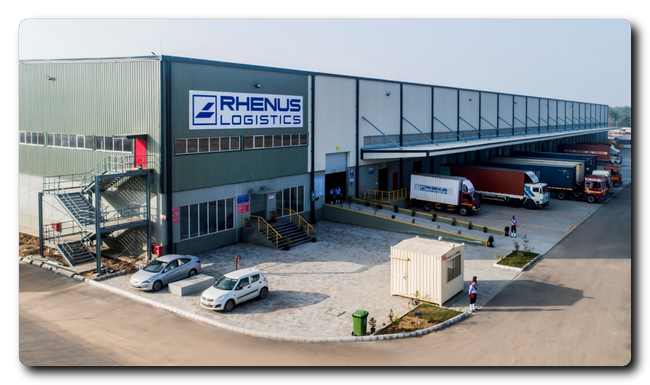
“Our flagship warehouse is raising the bar even higher in terms of quality, sustainability and safety. It is our goal, as a service provider, to be the first choice for integrated logistics solutions and scalable storage across India. Well-trained staff, standardised systems and modern processes are our advantage,” says Vivek Arya, Managing Director of Rhenus Logistics India.
The new flagship warehouse is the 69th Rhenus branch in India. The total storage capacity Rhenus operates across the country has thus increased to more than 175,000 square meters across 30 logistics centres.
“India is one of our key markets for our growth plans for the APAC region. Our high quality standards and decades of experience enable us to provide professional support to customers along the entire logistics chain,” says Jan Harnisch, Global COO Rhenus Air & Ocean.
Warren Controls Announces ILEA 5800E Series Electrically Actuated Valves
Warren Controls, a leading manufacturer of control valves and specialty fluid handling products, announces its new ILEA 5800E Series of high-quality, modulating, linear, electrically actuated industrial globe control valves.
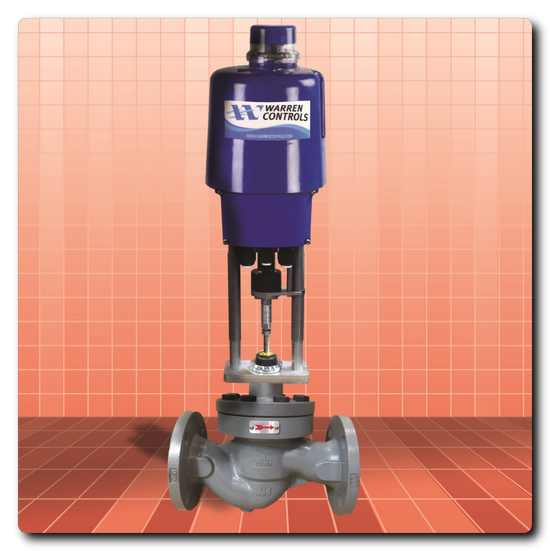
The E5800 Series features bolted bonnets and cage-retained seats in rugged, high-efficiency bodies of steel or stainless steel for ease of maintenance in a variety of trim materials and port sizes. The equal percentage and linear plugs provide excellent modulating control of a wide array of fluids. The 5800E Series is ideally suited for applications including but not limited to the chemical, district energy, food and beverage, general service, marine, pulp and paper, refining, and pharmaceutical industries.
The 5800E Series performs for temperatures from -20 to 800o F – handling severe service, dirty fluids, high pressure drops, and corrosive fluids. Available styles are a 2-way unbalanced cage-retained seat and a 2-way cage-balanced cage-retained seat. Sizes range from ½ to 4 inches with ANSI Class IV and Class VI leakage and with a rangeability of 50:1.
For more information visit Warren Control’s website.
About Warren Controls
Warren Controls is an industry leader in Industrial Control Valves, Building Automation Valves, Deaerator and Boiler Level Controls, and Military/Marine Valves. For more than 70 years, the company has maintained a strong commitment to providing specialty alloys, quick deliveries, and knowledgeable customer service. Warren Controls has earned a sterling reputation as a quality provider of valve specialties to OEM’s and USA military programs. From its state-of-the-art 60,000 square foot industrial complex, the company offers its experience, product design excellence, and superior production capabilities to the open market. At Warren Controls, the most technically qualified representatives in the industry are available to assist customers develop cost-effective, dependable solutions. Learn more at www.WarrenControls.com.
Metsä Board paperboards hold industrial compostability certifications
Metsä Board, a leading European producer of premium lightweight paperboards and part of Metsä Group, is glad to announce that its paperboards have now achieved DIN CERTCO certificates in industrial compostability complying with DIN EN 13432 and ASTM D6400 standards. In addition, Metsä Board’s eco-barrier paperboard MetsäBoard Prime FBB EB also holds a home compostability certificate. As one of the leading companies, Metsä Board provides certification across its product line helping customers choose packaging materials that comply with their requirements.
“In order to enhance circular economy our main target is that our paperboards are recycled after use. But recycling is not always possible – the paperboard may be contaminated due to its contents and cannot be recycled. In this instance compostability is the next best alternative,” says Helena Moring-Vepsäläinen, Product Safety Manager at Metsä Board.
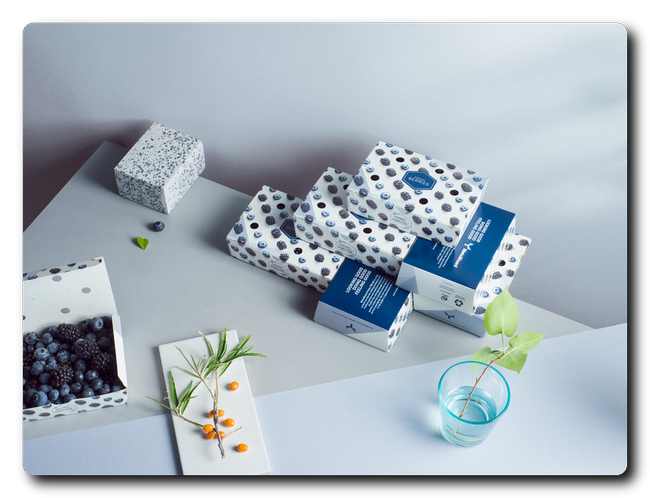
DIN EN 13432 standard refers to ‘Requirements for Packaging Recoverable through Composting and Biodegradation’. ASTM D 6400 certification covers the ‘Standard Specification for Labelling of Plastics Designed to be Aerobically Composted in Municipal or Industrial Facilities. The certified paperboards include all Metsä Board grades without a PE coating.
Metsä Board’s paperboards, folding boxboards and white kraftliners, are all made of pure fresh fibres sourced from sustainably managed Northern European forests. They are safe for direct food contact and free from fluorochemicals. Metsä Board paperboards are lightweight and strong, contributing to a reduction of the carbon footprint throughout the whole chain.
Valmet receives the eighth tissue line order from Hayat Kimya
Valmet will supply the eighth tissue line delivery including an extensive automation package to Turkish tissue producer Hayat Kimya. The company has decided to invest in a third machine in Russia in order to meet the increasing demand for their high-quality tissue products. This is the first machine at their new mill outside Moscow. The new line will add 70,000 tons of tissue to company’s current production of facial, toilet and towel tissues.
The order is included in Valmet’s orders received of the second quarter 2020. The value of the order will not be disclosed.
Hayat Kimya, the current world speed record holder with their TM2 tissue machine in Turkey supplied by Valmet, is constantly targeting latest technology to reach the highest efficiency and the lowest possible energy consumption. Previously the company has installed six Valmet Advantage DCT 200TS tissue production lines to its mills in Turkey, Russia and Egypt with one more starting-up in 2021.
“Our ambition is to run at high efficiency and Valmet’s technology is certainly supporting that target. We are regularly updating our machine fleet to make sure we always operate at optimum production level. We find both Valmet’s technology and people easy to deal with,” says Lütfi Aydin, Director, Paper Group, Hayat Kimya.
“We are excited to be part of Hayat Kimya’s successful journey. The company started only fourteen years ago and is already a world player, who will soon have nine tissue lines in operation,” says Björn Magnus, Sales Director, Tissue Mills business unit, Paper business line, Valmet.
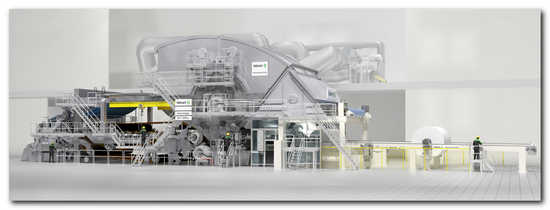 Valmet receives its eighth tissue line order from Hayat Kimya
Valmet receives its eighth tissue line order from Hayat Kimya
Technical information
The new tissue machine TM9 will have a width of 5.6 m and a design speed of 2,200 m/min.
The raw material to be used in the tissue production will be virgin fiber. The new production line is optimized to save energy and to enhance the quality of the final product.
Valmet’s scope of delivery will comprise a complete tissue production line featuring stock preparation systems and a Valmet Advantage DCT 200 TS tissue machine. The machine will be equipped with an OptiFlo headbox and a cast alloy Yankee cylinder. It will also be featured with the Advantage tissue technology including ViscoNip press, an AirCap Heli hood and air system prepared for co-generation, WetDust dust system, sheet transfer system and a SoftReel L reel. The line also includes a Valmet F(O)CUS Rewinder. The stock preparation line will consist of OptiSlush pulpers, OptiFiner conical refiners and OptiScreen machine screens.
Furthermore, the delivery will include an extensive Valmet automation package with Valmet DNA machine controls, process controls and Valmet IQ quality controls. Complete engineering, installation supervision, training, start-up and commissioning are also included in the delivery.
Information about Hayat Kimya
Hayat Kimya A.S. is part of the Hayat Group. The Hayat Group primarily operates in the home care, hygiene and tissue categories for the consumer goods industry. Hayat has continued to invest significantly since their entrance into the tissue category 14 years ago and today the Group carries "The Largest Tissue Manufacturer of Africa, Middle East and Eastern Europe" title with 490,000 tonnes production capacity/year.
GREYCON LAUNCHES NEW WEBSITE
Greycon, a leading technology company focused on delivering planning, scheduling, trim optimisation, and MES solutions to assist manufacturers worldwide, is inviting visitors to explore their new website at https://www.greycon.com.
 The website has been designed to offer an enhanced user-friendly experience with improved navigation and functionality while allowing users to see the full product portfolio Greycon can offer.
The website has been designed to offer an enhanced user-friendly experience with improved navigation and functionality while allowing users to see the full product portfolio Greycon can offer.
Created with the user experience in mind, the site includes many new features to help users to quickly and easily navigate the site and find the solutions that are right for them. New features include:
- Look Ahead Navigationto reduce the number of user clicks to navigate the site
- My Greycon which allows current Greycon customers access to exclusive content
- Customer Stories allow visitors to hear first-hand from individuals and companies just like them
- Advanced Device Compatibilityfocuses on site performance, ensuring it is compatible across all browsers and mobile devices
“We are delighted to debut our new company website to our clients and partners, who are looking to understand the breadth of Greycon’s products and services,” said Abder Guezour, Greycon’s Managing Director. “This website redesign allows each of our visitors to have a unique experience while having access to our service information, educational webinars, latest news and premium content for our existing customers.”
Greycon’s new website will be updated on a regular basis with news of product launches and software updates, essential customer information, corporate milestones and industry news through the new online blog.
Visitors are encouraged to explore the new website and sign up to the Greycon’s newsletter.
For more information on Greycon and to view the site, please visit https://www.greycon.com.
PMP supports dynamic development of Arctic Paper Kostrzyn S.A.
Arctic Paper Kostrzyn S.A. has been continuously working on modernizing its machine fleet for last several years. The priority is, invariably, an increase of production capacity, an improvement of final products’ quality parameters and implementation of environmentally friendly & energy-saving solutions. Arctic Paper Kostrzyn S.A. for years have been partnering with PMP applying ambitious technological projects. In addition, both companies support the idea of "good, because it is Polish".
In 2019, PMP successfully rebuilt a press section of PM#1 with a new Intelli-Nip® shoe press included. The solution proposed by PMP improved dryness after press from 43% before rebuilt to 48% after rebuilt. The technology of the shoe press also enhanced properties of paper, and also significantly improved PM efficiency.
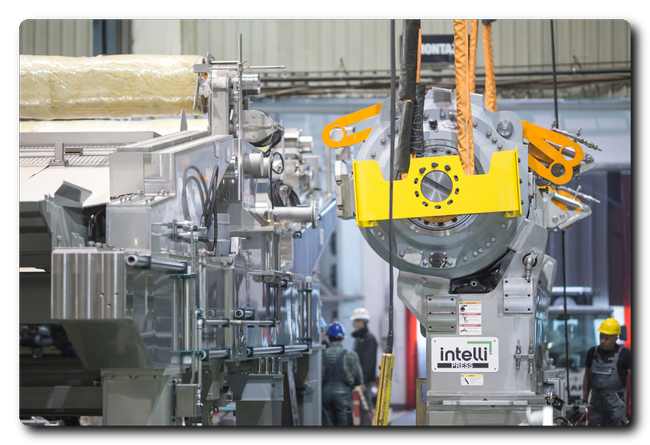
PM1, 5300 mm @reel, after rebuild, produces offset paper, with a grammage range from 60 to 100 gsm. The operating speed after rebuilt is 1000 mpm. PMP's scope of delivery included: press section equipped with the Intelli-Nip® shoe module (maximum design pressure 600 kN/m, shoe module diameter 1100 mm); this is the first PMP reference for a module with a smaller diameter. In addition, PMP provided controls, replacement parts and assembly and commissioning supervision.
As a result of so far a fruitful cooperation, in April 2020, PMP signed another contract with Arctic Paper Kostrzyn team, for a revamp of a press section, this time for another machine. The purpose of the rebuild is to improve the condition of the section framework and to eliminate vibrations.
PM2, 5300 mm @reel and an annual capacity of 160,000 tons, produces single-layer wood-free graphic paper with a grammage range from 60 to 170 gsm. The scope of supply will cover an entire new framework, including press roll swing arms, savealls, platforms, mechanical drives as well as assembly and commissioning supervision service. The framework will be entirely made of stainless steel. The investment is planned for summer 2021.
Södra can now produce RCS-certified OnceMoreᵀᴹ pulp
Södra received its certification (1) according to the Recycled Claim Standard (RCS) on 24 June. The aim of RCS is to increase the use of recycled materials.
“This certification enables Södra to produce and sell RCS-certified OnceMoreᵀᴹ pulp. It means that customers receive a promise that recycled cotton has been added to the mixture and that the cotton is derived from collected textiles that would otherwise have been treated as waste,” said Eva Gustafsson, Sustainability Coordinator at Södra.
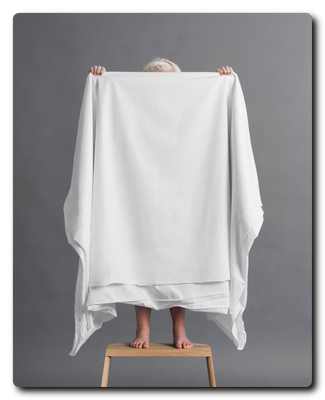 The Recycled Claim Standard is an international, voluntary standard that sets requirements for third-party certification of products containing recycled material. The certification is administered by Textile Exchange, an organisation focused on increasing sustainability in the textile industry and the textile supply chain.
The Recycled Claim Standard is an international, voluntary standard that sets requirements for third-party certification of products containing recycled material. The certification is administered by Textile Exchange, an organisation focused on increasing sustainability in the textile industry and the textile supply chain.
“The Recycled Claim Standard is intended to show that you are processing and selling products that contain at least 5 percent recycled material. For Södra, this means that we can sell our OnceMoreᵀᴹ pulp with an admixture of recycled cotton as RCS-certified. RCS certification of products sold to end-consumers requires certification and traceability throughout the supply chain. The certification shows that our OnceMoreᵀᴹ pulp contains cotton that really is recycled and derived from collected textiles that would otherwise have been treated as waste,” said Eva Gustafsson.
With OnceMoreᵀᴹ, Södra has created a globally unique solution where large volumes of used cotton and blended fabrics can be re-used to make new clothing and textiles. Only a negligible proportion of all textiles are re-used today. Nearly everything is sent to landfill or incineration. That will change now that Södra can accept large amounts of textiles for recycling. The long-term target is to use 25,000 tonnes/year of textiles that would otherwise be treated as waste.“Following our launch of OnceMore™ in autumn 2019, we received several inquiries from brands and other players in the textile supply chain. One of the most common requests was that we obtain RCS certification. I am very pleased that we have already become certified, which is proof that we can offer products containing recycled textiles. Now I hope that the rest of the textile supply chain will follow suit so that RCS-certified garments and other textiles materials based on our OnceMore™ technology will soon be available in stores”, said Johannes Bogren, Vice President, Södra Cell Bioproducts.
(1) Certified by Control Union, CU 1059293
Measurement solutions for pulp and paper applications
Berthold is expert in monitoring critical processes. As technology leader of radiometric measurements we bring benefit to the pulp and paper industry by providing highly accurate and reliable online measurements – the base for a cost-efficient and high-quality production.
Applications are wide ranging from the radiometric level measurement on a pulp digester, over the concentration measurement of green or black liquor, up to the mass flow measurement of recycling paper on conveyor belts. Using microwave transmission technology we provide real-time measurements of the moisture content of wood chips – even pulp consistency measurements are possible.
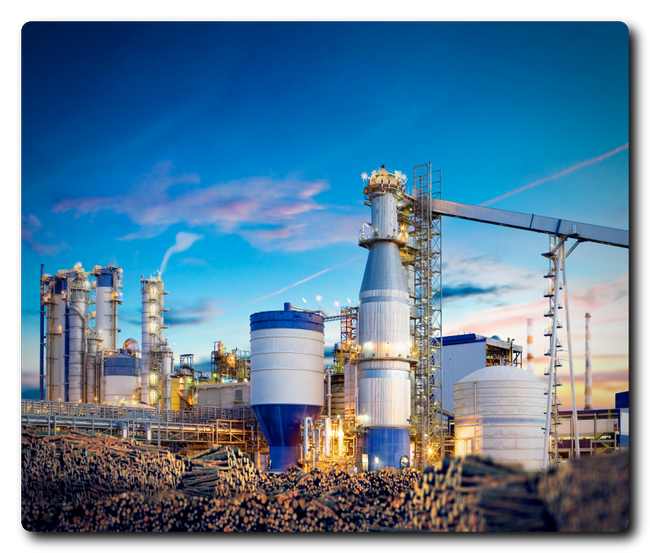
These advantages are used to make critical applications more reliable:
-
Non-contacting: outside mounting of components
-
Reliable under extreme conditions
-
Wear and maintenance-free
-
Easy installation on existing pipes and vessels via clamp-on solutions
-
Smooth handling and operation
-
No re-calibration required
-
Outstanding long-term stability
-
Virtually no operational expense
The processes in which Berthold instruments are used include:
· Level and high-level switch in the pulp digester
· Pulp stock level in the MC pump standpipe
· Blockage detection in the pulper
· Mass flow of wood chips or bark
For further information please visit this link: www.berthold.com/pulp-paper-industry
How Kimberly-Clark Professional Malaysia reduced downtime thanks to a Paper Slitter Rewinder upgrade
One of the most critical parts of the paper and tissue production line is the slitter rewinder, a machine that has traditionally required direct operator contact in order to manually set the knives and operate the core handling system.
However, companies often use obsolete systems that are unable to maximize production and are not equipped with adequate safety features. One company that discovered the benefits of the said upgrade was Kimberly-Clark Professional Malaysia. Thanks to this, they achieved a significant reduction in downtime, as well as greater safety and productivity. Here is their story.
Kimberly-Clark Professional Malaysia’s paper slitter rewinder upgrade
Kimberly-Clark Professional Malaysia is a leading producer of leading-edge hygiene and cleaning solutions for the workplace and washrooms, such as facial and toilet tissue, paper towel, napkins, wipes, skincare and sanitizers, under brands like Kleenex® and Scott®.
One area of the plant that Kimberly-Clark specifically wanted to work on was the slitting section of their slitter rewinder. The company wanted to achieve certain results; among these, the most critical ones were:
- The improvement of cut precision and knife quality
- The reduction of maintenance time of the slitting section
- The reduction of the cycle time of the core handling system
- The improvement of the slitting section operators’ safety and the reduction of the hazards around the shaft puller
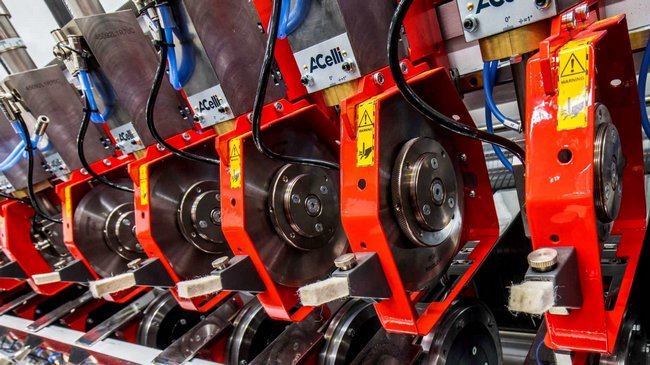
After setting these goals, Kimberly-Clark contacted A.Celli to inquire about a new slitting system, and we were more than happy to provide a technical consultation to further understand their specific needs.
The project and the final results
After the aforementioned assessment, A.Celli’s proposal was to perform a technological upgrade consisting of the most up-to-date knife holders with top of the line material blades and a faster and easier blocking system.
Another significant part of the supply was the new semi-automatic cantilever shaft-puller, which replaced their old manual steel rope shaft-puller. Our solution operates by extracting the expandable reel spool from the jumbo roll and placing it into the core located on the V platform. This is done by a single operator, who uses the mill air pressure hose to manually inflate/deflate the expandable reel spool, eliminating the need to touch the roll or the reel spool.
Once the new paper slitting system was up and running, Kimberly-Clark saw immediate results, which included:
- Better cut quality, particularly on the edges of the finished reels
- Longer blade life
- Easier knife holder dismantling and reassembly
- Significantly quicker core handling and shaft puller cycle time
- Significantly reduced need for manual operations
- Increased operators’ safety
A.Celli’s configurations for the slitter rewinder upgrade
When it comes to upgrading the slitter rewinder, A.Celli is the best choice. By relying on us, in fact, you have the possibility to choose from four different configurations:
- Manual positioning
- Manual positioning with a measuring device
- Automatic positioning web out (SLITTOMATIC®)
- Automatic positioning web in (SLITTOMATIC®)
Kimberly-Clark is just one example of what can happen when a company choose our upgrades.
The end result, that is, a superior product manufactured in less time and higher productivity, will ultimately increase a company’s bottom line. Add to this an increased operator satisfaction and the slitter rewinder upgrade is well worth the investment.
If you want to know more, contact us today for a free and non-binding consultation!
Toscotec to rebuild the dryer section of PM4 at Aviretta, Germany
German containerboard manufacturer Aviretta selected Toscotec to rebuild the post dryer section of its PM4 at Ettringen mill, Bavaria. PM4 produces test liner and fluting from 60 to 130 g/m². Start-up is scheduled for the fourth quarter of 2020.
Toscotec will supply nine TT SteelDryers of over 7 m face width, which will replace PM4’s existing cast iron cylinders. The scope includes condensate spoiler bars, steam joints, bearings and housings, and spares. Aviretta also ordered a comprehensive service package, with engineering, on site disassembly, erection, commissioning, and start-up.
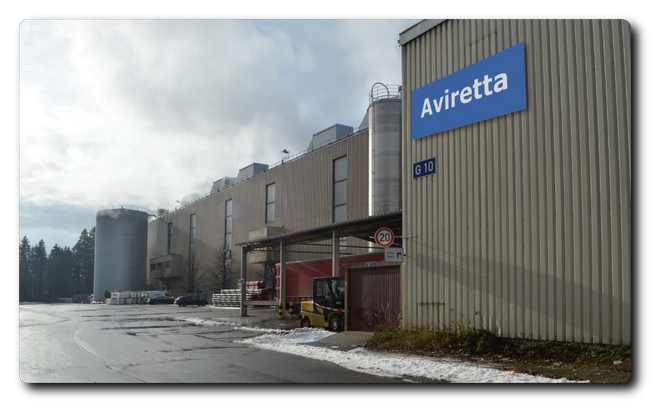
Carl Pawlowsky, Executive Partner of Aviretta GmbH, said: “I was very impressed with Toscotec’s technical proposal, due to the quality of its TT SteelDryers, their wide installed base, and Toscotec’s substantial experience in the field. We expect to be able to count on a very reliable product with high performance in the long term.”
Giancarlo Gianlorenzi, Toscotec’s Sales Manager, said, “We are proud to be recognized in a technological market such as Germany. With this new project, Toscotec is confirmed as the benchmark supplier of dryer section rebuilds of large format and high speed paper machines. We are happy to start a new partnership with Aviretta, and are confident that our TT SteelDryers will satisfy their reliability and quality requirements. The schedule of the rebuild is rather tight, but we will meet their expectations.”
About Aviretta GmbH
Aviretta is a German containerboard manufacturer of medium and fluting grades, based in Ettringen, Bavaria. It annual production is approximately 170,000 tonnes, with a range of containerboard grammages from 60 g/m² to 130 g/m². Aviretta uses 100% recovered fibres certified by FSC® standards.
